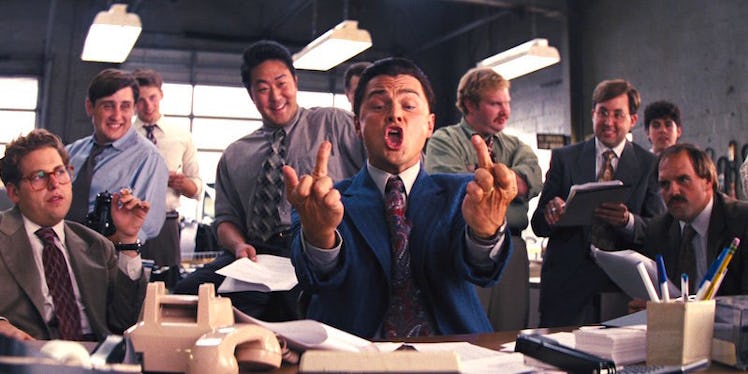
The Real Connection Between Being Successful And Extremely Competitive
I’ll never fully understand why being “competitive” holds such a negative connotation among certain people.
I don’t know, I guess I’ve always viewed the world as “dog-eat-dog” and considered competitive people the ones best suited for success.
But that’s also coming from a kid who cried after Scrabble games as a child and never ceased to say, “double or nothing,” after losing a bet.
I will say, being competitive isn’t a very attractive quality, and to many, it can be perceived as a sign of over-aggression.
A lot of times, competitive people come off as combative, when in reality, their intentions may genuinely be for the greater good of a situation.
Frankly, I feel as though attaching a label to the qualities that fall under the umbrella of “competitiveness” contributes to the negative stigma of these types of people.
Dictionary.com defines the term as “having a strong desire to compete or to succeed.”
If that were a question on "Jeopardy," I guarantee more than a few people would’ve answered, “What is ambition?” to themselves on their couch at home.
Having said that, there’s a difference between being someone who can’t lose and somebody who wants to win.
According to one blog, Bothsidesofthetable.com, the best entrepreneurs are hypercompetitive and hate losing.
The business world is hypercompetitive by its nature; it makes sense that the best entrepreneurs are hypercompetitive themselves.
The most competitive people simply won’t accept losing as an answer, and, as a result, do whatever it takes to achieve a desired outcome.
And although the people around them might not want to grab drinks with them after work, you really can’t fault them for striving to succeed.
Some of the best entrepreneurs of the past few decades were super competitive – the same heads of huge corporations such as Steve Jobs, Bill Gates and Steve Ballmer amongst others, writes Bothsidesofthetable.com.
The NYT Bits section, another blog, explores whether competitiveness is more than merely correlated with high achievement, but required for it.
In an article titled “Do You Have to Be Rude to Manage Like Steve Jobs,” Nick Bilton reviews the work of Walter Isaacson, who also penned the Steve Jobs biography.
In a recent article for Harvard Business Review, Isaacson spoke about Jobs, saying, “his petulance and impatience were part and parcel of his perfectionism.”
This idea of perfection is a goal embedded in the heads of most competitive people.
The most competitive people, however, don’t just strive for perfection: They obsess over it. Jobs certainly did.
According to Isaacson, “it’s important to appreciate that Jobs’ rudeness and roughness were accompanied by an ability to be inspirational.” And he affirms that all of Jobs’ employees knew this.
It was the reason Jobs was able to maintain one of the most loyal workforces throughout the entire span of his life.
Isaacson does not deny Jobs’ arrogance, “but those who worked with him admitted that the trait, infuriating as it might be, led them to perform extraordinary feats.”
Competitive people just have a different set of values than the majority of their peers. And that’s part of what enables them to set themselves apart from the pack, so to speak, especially in business environments.
In my opinion, if the non-competitive people are leaving their offices at 5 pm on the dot, and it comes off as being “overly aggressive” to work till 8 pm and try to stay ahead of the game, then that just disregards any concept of work ethic in your office.
I also, however, believe that it’s crucial to make yourself approachable to the people around you, as hypercompetitive people tend to be very one-track minded, which can become blinding.
It’s always important to surround yourself with the right people to keep you in check.
Feedback is important, whether positive or negative. While positive feedback pleases the ego and might provide you with a touch of swagger going forward, negative feedback might be the more useful of the two.
Competitive people will use past failures to fuel future success. Look at Michael Jordan, for example; Jordan is engraved in history as one of basketball’s greatest winners, but in his mind, his failures were equally as important.
According to Scott Cowley of Business Insider, “Jordan viewed failures as stepping stones towards success.” He didn’t view losing in a negative way.
When people think of “overly competitive” people, they’ll usually assume such people are unaccepting of failure.
If that were the case with Michael Jordan, I doubt he would view failure so positively. See, there’s a line, albeit a fine line, between competitiveness and stubbornness.
Stubborn people insist upon a certain outcome. Competitive people work for it.
As Tony Manfred, also of Business Insider, writes, Michael Jordan was “insanely competitive.” People don’t view Jordan as arrogant, though.
In fact, I guarantee if you go to any grade school in America and ask the student body who their favorite basketball player is, the majority will say Michael Jordan.
It’s just hard to criticize competitiveness when you’re successful. Success will always vindicate competitiveness.